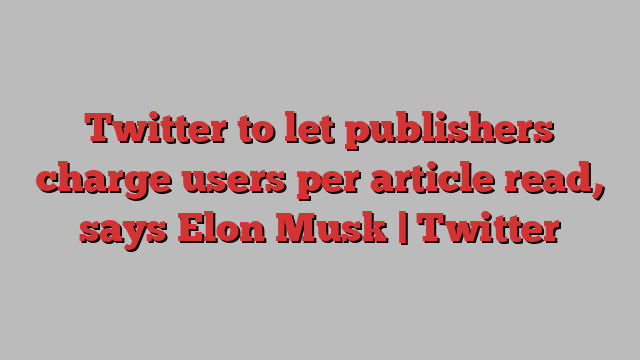
Twitter CEO Elon Musk said on Saturday that the social media platform will allow media publishers to charge users on a per-article basis with one click, calling it a win for both the public and media organisations.
The feature, to be rolled out in May, will enable users who do not “sign up for a monthly subscription to pay a higher per article price for when they want to read an occasional article”, billionaire owner Musk tweeted.
On Friday, Musk had said that Twitter will take a 10% cut on content subscriptions after the first year, noting that the company will not take a cut for the first 12 months. These subscriptions include long-form text and hours-long video.
Rolling out next month, this platform will allow media publishers to charge users on a per article basis with one click.
This enables users who would not sign up for a monthly subscription to pay a higher per article price for when they want to read an occasional article.…
— Elon Musk (@elonmusk) April 29, 2023
Since taking over the social media firm in October, Musk has been bringing in changes to try to boost revenue at Twitter after the social media platform saw advertising income drop last year in the run-up to his on-again-off-again acquisition that closed.
Under Musk’s ownership Twitter has reduced its workforce from 7,500 people to about 1,500, leading to fears that moderation standards and its ability to comply with upcoming European standards would suffer as a consequence.
Twitter has been repeatedly warned that it is not ready for a new European Union regulatory regime for monitoring digital platforms, with breaches risking a fine of 6% of global turnover and, in the most extreme cases, a temporary suspension of the service.
Under the rules for large platforms, they must carry out annual risk assessments outlining the risks of harmful content such as disinformation, misogyny, harms to children and election manipulation. The moderation systems and measures put in place to mitigate those risks will also be checked by the EU.
Platforms will also be banned from building profiles of child users for companies to target them with ads. Those platforms that can be reached by minors must also put in place measures to protect their privacy and keep them safe. Users must also be able to report illegal content easily.
With Reuters